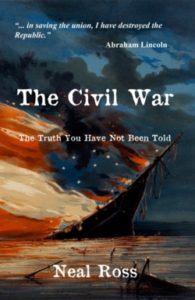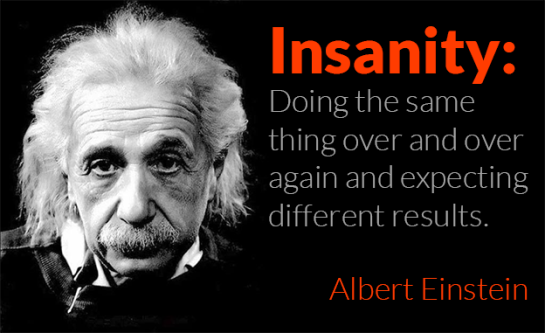 The other night someone asked me an interesting question; they asked me how much longer I thought America has until it collapses. I told the person who asked me that I’m not very good at making estimates like that, but that I think we’re pretty close to it happening. I guess, however, that question stuck in my head; for when I awoke this morning I had all kinds of stuff floating around in there related to that question…
The other night someone asked me an interesting question; they asked me how much longer I thought America has until it collapses. I told the person who asked me that I’m not very good at making estimates like that, but that I think we’re pretty close to it happening. I guess, however, that question stuck in my head; for when I awoke this morning I had all kinds of stuff floating around in there related to that question…
First of all I suppose I should talk a minute or two about what is meant by the word collapse. If a building collapses there is nothing left but the foundation and a pile of rubble; such as when the Twin Towers and Building 7 of the World Trade Center were brought down by controlled demolition on 9/11 – and yeah, you can add me to your list of crazy conspiracy theorists, it won’t bother me in the least.
But when it comes to nations, or empires, collapse takes on a different meaning. When the Roman Empire collapsed, or fell, did the people living in Rome just up and vanish, or did Rome persist and all that changed was the mode or principle by which they were governed change? I think our country began the process of collapsing a very long time ago, and now we’re just witnessing the final stages of it; although some are so politically inept that they can’t see it.
In the mid to late 70’s I read Isaac Asimov’s Foundation Trilogy for the first time and was struck by something he wrote in it. First off, the Foundation Trilogy originally consisted of 3 novels about the fall of the Galactic Empire and the rise of a new empire. The first novel begins when Hari Seldon, a mathematician foresees the fall of the Galactic Empire and sets in motion a plan to bring about the rise of a new empire within 1,000 years. But what struck me is something Seldon said while discussing his theories of psycho-history; that the empire was already collapsing, even though it was still big and powerful; and the people couldn’t see what was happening because they didn’t see the big picture, of things from a psycho-historical perspective, (or words to that nature; it’s been a long time since I read it).
Historians say that Rome ruled the world, or a large portion of it, for a very long time, but that around the year 200 A.D. it began to decline, and around 476 A.D. it finally fell; a period of about 276 years. That’s pretty close to the time America has been in existence as an independent nation; with our history as an independent country dating back 244 years to the signing of the Declaration of Independence in 1776.
So I suppose the first question we must ask ourselves is, what did the person who asked me when I thought America was going to collapse mean when he used the word collapse? Did he mean that America was going to sink into the ocean like the lost continent of Atlantis; never to be seen again? I’m not saying that it couldn’t happen if God wills it, but in regards to the question that was asked of me, I think that’s not what will happen.
Did the person mean that America will cease being a military and economic superpower; reduced to 3rd World status? While that’s moving more in the direction of my line of thinking, it’s not exactly how I would define collapsing as it refers to America. The way I would define collapsing is the erosion of, ending with the complete abandonment of the principles a country was founded upon; the country will persist, but it will be of a character that those who originally established it did not intend it to be.
I think we can all agree that America, as a free and independent country, made its appearance on the world stage in 1776; although it took a prolonged war with Great Britain to obtain that independence. What may be disputed is the date which saw us begin our decline. I may be alone in thinking this, but I’m pretty sure there are others who will agree with me, but I think the life of America, (based upon the principles those who fought in our Revolution stood for), was short lived; 13 years to be exact; from 1776-1789.
Those who led the call for independence, and those who fought for its cause, wouldn’t recognize this country, or its people today; we have changed that much in our attitudes and beliefs regarding the purpose of government and an understanding of what rights and liberty are. However that decline in understanding, and the shift from liberty to where we are today all began around, the year 1787 when a group of men got together and set in motion plans to fundamentally alter the system of government this country had; and it’s all been downhill ever since. To explain that belief I suppose it is best I provide something of a timeline of events so that you can see the progression from bondage to liberty and back into bondage again.
In 1607 the first British Colony was established in America at Jamestown, Virginia, under a charter granted the settlers by the British Crown. Before I go any further I must say something. I think that a great many people may read things, but not really think about the individual words being used, or the context in which they are used. Take for instance the word colony; people just automatically assume I’m talking about the States. Unfortunately, that is not what a colony is.
A state is typically a politically sovereign and independent entity with its own system of government; free of outside control by others. In between the years 1607 and 1783, (when the Treaty ending the Revolution was signed), there were no states in America, there were colonies. A colony is an entirely different thing than a state; as a colony may be located far from the controlling power, i.e. government, but it still remains under the control and jurisdiction of that government.
Those living in a Colony, although they may be left pretty much alone, are still subject to the authority of the parent nation; which brings up an entirely new point, the word or phrase, subject to. A subject is one who is not free; rather it is one who has a supreme or sovereign authority governing over their lives. Someone who is a subject is subjected to the will of another, or others; they are subjugated. The definition of subjugate is to bring under control, or to make submissive; which implies a loss of individual freedom.
Okay, now that we’ve gotten that out of the way, let’s continue with our timeline. A few years after the Colony of Jamestown was established, British Privateers brought the first African slaves to their Colony. Now people may think that privateers are pirates, which they are in a way; but they are pirates that act under the authority of their government; having been granted permission to plunder the seas by and for their respective governments. So when these first slaves were brought to America, they were brought here under the authority of the King of England.
As time went by, more Colonies were established in America; beginning with the landing at Plymouth, and culminating with the 13 Colonies that declared their unified independence from Great Britain in 1776. What led them to do that; to seek independence from a government that they had, for the most part, enjoyed a great deal of freedom and support from?
It was not a single event that led the Colonies to seek independence; rather it was a long train of abuses, to steal a phrase from the Declaration of Independence; although Lexington & Concord made the intentions of the King of England pretty clear to those who only wanted to live their lives free of oppressive taxes and laws.
Although acts of civil disobedience may have taken place throughout the Colonies, for the most part they sought a peaceful resolution between themselves and Great Britain rather than a complete severing of the ties that bound them to England. Jefferson explained that thusly in the Declaration of Independence, “In every stage of these Oppressions We have Petitioned for Redress in the most humble terms: Our repeated Petitions have been answered only by repeated injury. A Prince, whose character is thus marked by every act which may define a Tyrant, is unfit to be the ruler of a free people.”
 Numerous phrases, or sayings, were bandied about during the times leading up to the war for independence; such as ‘Unite or die’ or ‘taxation without representation.’ However, Patrick Henry summed up the principle they would soon be fighting for best when he said, “Give me liberty or give me death.” Above all else it was liberty that the Colonies desired; the ability to live their lives free of any coercive and arbitrary power that had the authority to violate their rights as freemen.
Numerous phrases, or sayings, were bandied about during the times leading up to the war for independence; such as ‘Unite or die’ or ‘taxation without representation.’ However, Patrick Henry summed up the principle they would soon be fighting for best when he said, “Give me liberty or give me death.” Above all else it was liberty that the Colonies desired; the ability to live their lives free of any coercive and arbitrary power that had the authority to violate their rights as freemen.
When Lord Cornwallis surrendered at Yorktown the chains that had bound the Colonies to British rule were effectively severed; with the Treaty of Paris being but a formality ending hostilities between the two countries. What is important to understand is the transition that took place at this point in our history. Previously, although each Colony had been separate from the others, they had all been common in the fact that they were all subject to the laws and taxes enacted by the same government; the one they had just fought a war to free themselves from; the Crown.
So when the Colonies gained their independence, the glue that had bound them together under a single governing entity was dissolved and each became free and independent, with only themselves to govern. To truly understand the significance of that you might want to think of the newly established STATES as sovereign and independent countries. For instance, in Europe Spain, France, Germany and Italy are all sovereign countries, with each one only having the authority to govern those living within their borders. Spain could not enact a law that affected the people of Italy, and so were the newly established States; Pennsylvania could not enact a law that affected the people of Virginia; each was distinctly free and independent of the others.
During the Revolution, the Continental Congress, (which acted only on behalf of the Provincial governments of the separate Colonies) wrote a document entitled The Articles of Confederation; suggesting that they join together into a confederation; which was then submitted to each separate Colony for their consideration. In 1781 that document was ratified by all the parties to which it would apply; meaning all 13 Colonies.
When the Revolution ended, the Congress established by the Articles of Confederation became the government for these States united, and the Articles of Confederation became our first constitution. I don’t want to go into any great detailed description of the Articles of Confederation, but there are 4 key points that need to be addressed if we are to continue.
* Under the Articles of Confederation; Each state retains its sovereignty, freedom, and independence, and every power, jurisdiction, and right, which is not by this Confederation expressly delegated to the United States, in Congress assembled.
* Under the Articles of Confederation; For the most convenient management of the general interests of the United States, delegates shall be annually appointed in such manner as the legislatures of each State shall direct, to meet in Congress on the first Monday in November, in every year, with a power reserved to each State to recall its delegates, or any of them, at any time within the year, and to send others in their stead for the remainder of the year. (My emphasis)
* Under the Articles of Confederation; In determining questions in the United States in Congress assembled, each State shall have one vote.
* Finally, under the Articles of Confederation; Every State shall abide by the determination of the United States in Congress assembled, on all questions which by this confederation are submitted to them. And the Articles of this Confederation shall be inviolably observed by every State, and the Union shall be perpetual; nor shall any alteration at any time hereafter be made in any of them; unless such alteration be agreed to in a Congress of the United States, and be afterwards confirmed by the legislatures of every State. (My emphasis)
You may not have noticed, but in all those passages there is absolutely no mention made of the people; for this government was not established to serve, or to act directly upon the people; it was established by the States and for the States. Now compare that to what Lincoln said in his Gettysburg Address, “…that government of the people, by the people, for the people, shall not perish from the earth.”
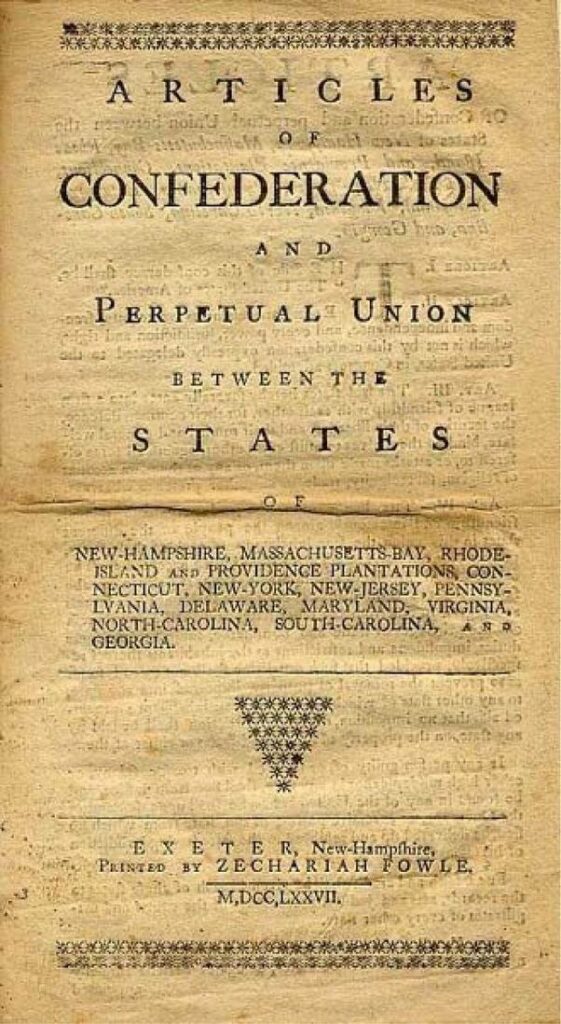 So how did that happen; how did a government of the States, by the States, and for the States become a government of the people, by the people and for the people? Well it all happened in 1787 when Madison and crew got together behind closed doors and wrote the constitution; fundamentally altering the structure, and sphere of authority held by our central government.
So how did that happen; how did a government of the States, by the States, and for the States become a government of the people, by the people and for the people? Well it all happened in 1787 when Madison and crew got together behind closed doors and wrote the constitution; fundamentally altering the structure, and sphere of authority held by our central government.
The government established by the Articles of Confederation was a federal government; as its authority only extended to the States; and only upon the consent of all 13 of them. Also, under the Articles of Confederation each State was an equal partner in the confederation, with each State having only 1 vote in Congress. All that changed when the constitution was presented to the States and subsequently ratified; from that point forward we would have a ‘national’ form of government; just as Lincoln described in his Gettysburg Address. Some of the changes that took place can best be explained when I compare them to the specific passages I mentioned from the Articles of Confederation.
First, under the Articles of Confederation each State retained its sovereignty and independence. Madison sought to do away with that even before the convention in Philadelphia began, writing to Washington, “I have sought for some middle ground, which may at once support a due supremacy of the national authority, and not exclude the local authorities wherever they can be subordinately useful.”
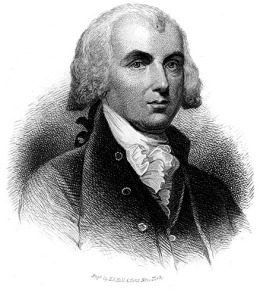
James Madison
Madison wanted to place the States under the control of the government he was attempting to establish, not above, not as a co-equal partner, but UNDER it; which means the States would become subjects, or subjugated to it; just as they had been under the King of England. Patrick Henry saw through Madison’s reassurances and said this of the proposed plan for a new system of government, “Here is a revolution as radical as that which separated us from Great Britain.”
Noticeably absent in both the constitution and the 10th Amendment is the word ‘EXPRESSLY’. Madison vehemently opposed the inclusion of that word in any statement limiting the powers of the government he was seeking to implement. In fact, in the deliberations of the convention that produced the constitution they went to the other extreme, declaring that this system of government would have all powers that were deemed necessary and proper into carrying into execution the specific powers found in Article 1, Section 8.
What exactly does necessary mean? As a human being, air, food and water are necessary for our survival; all else is not necessary. Hamilton and Jefferson argued this point when Hamilton proposed the creation of a central bank for the United States; with Hamilton saying necessary meant anything that could be useful in achieving the goals intended by the specific powers and Jefferson saying that necessary meant necessary, not helpful. Using Hamilton’s broad definition of the word necessary, I could run people off the road while driving to work because it is necessary to clear way on the highway so that I can get to work on time. Under Hamilton’s definition the meaning of necessary is left to the whim of the government, not those who established it. Patrick Henry once said something like, “The necessary and proper clause is the doorway through which all manner of evil may enter…”
Under the Articles of Confederation each State could recall its delegates if it was felt they weren’t serving their States to the best of their ability. No such clause is found anywhere in the constitution; meaning the only thing we can do is wait until an election cycle rolls around so we can vote them out of office. Under the constitution there is no provision by which either the States, or the people, could punish those they sent to represent them in this system of government should they violate the trust imposed upon them.
Twice, on June 5, 1788 and on June 7, 1788 Patrick Henry voiced his concerns over this deficiency:
The Honorable Gentleman who presides, told us, that to prevent abuses in our Government, we will assemble in Convention, recall our delegated powers, and punish our servants for abusing the trust reposed in them. Oh, Sir, we should have fine times indeed, if to punish tyrants, it were only sufficient to assemble the people. Your arms wherewith you could defend yourselves, are gone; and you have no longer an aristocratical; no longer democratical spirit.
Did you ever read of any revolution in a nation, brought about by the punishment of those in power, inflicted by those who had no power at all?
Where is the responsibility — that leading principle in the British government? In that government a punishment, certain and inevitable, is provided: But in this, there is no real actual punishment for the grossest maladministration. They may go without punishment, though they commit the most outrageous violation on our immunities. That paper may tell me they will be punished. I ask, by what law? They must make the law — for there is no existing law to do it. What — will they make a law to punish themselves? This, Sir, is my great objection to the Constitution, that there is no true responsibility — and that the preservation of our liberty depends on the single chance of men being virtuous enough to make laws to punish themselves.
Next up, under the Articles of Confederation each State had a single vote in Congress. While that feature, or ratio remained in the Senate, the House of Representatives is another story altogether; giving the more populous States a much louder voice in Congress. This was intentional, as those who wrote the constitution wanted the larger states to be able to dominate and subjugate the smaller ones. In fact, during the convention that produced the constitution Madison had wanted the Senate to be based upon population as well but the smaller States objected and almost brought the convention to a standstill over this issue until the existing compromise was arrived at; the States would be equal in the Senate, but unequal in the House.
Finally, under the Articles of Confederation no amendments or alterations, (including the granting of unspecified, or implied powers) could occur without the consent of those who had established the Confederation; the State Legislatures. This is so vitally important that I can’t emphasize how all that changed with the adoption of the constitution enough. If people would but read the constitution they would see that there are very few powers delegated to this system of government; far fewer than it actually exercises today.
* This government does not have the authority to purchase or set aside land for national parks or game reserves.
* This government does not have the authority to establish nationalized health care for the people.
* This government does not have the authority to pass laws telling people that certain substances are illegal.
* This government does not have the authority to take the income from some and redistribute it to those in need; or those it deems deserve it more than those who actually earned it.
* Finally, this government has absolutely no authority, in fact, it has clearly defined restrictions, (the Bill of Rights), from doing anything that violates, restricts, or infringes upon any of the rights mentioned within the first 10 Amendments to the constitution.
Yet here we are with a system of government doing all of the above; and much, much more. Who authorized them to do these things? Did we do it through the prescribed method of a constitutional amendment granting them new powers? If so, I sure haven’t read any such amendment. The only answer then must be that the government itself decided for itself that it would exercise those powers without our permission; making it tyranny, which Locke defines as, “… the exercise of power beyond right…”
Much of this can be laid at the steps of the Supreme Court, for it is they who are deemed to have the final say in what powers are, and what aren’t constitutional; making their decisions superior to the will of those who actually gave their consent to this system of government. But aren’t they also a part of this government; and if so, that’s akin to letting the fox guard the henhouse if you ask me.
But we vote Neal. Yes, you do; and how has that worked out for you in restraining government from violating your rights and preserving your liberty? How well has your voting prevented government from spending more than it confiscates from you in taxes; so much so that we have a $23.3 trillion national debt; which thanks to the 14th Amendment is YOUR obligation to pay off; or you, your labor and your property can be claimed as collateral for that debt.
People say the Civil War was all about slavery. I hate to burst your bubble, but the Civil War was the last dying gasp of liberty in America, as the South sought to either keep government within its specific powers, or leave a voluntary compact between themselves and the other co-founders of this system.
When Lincoln denied that right, and when the North won the ensuing conflict, Madison’s dream came true; the States, and the people living within them, would henceforth and forever be subordinate to the will of Uncle Sam; and boy, has he proven to be a real asshole!
Oh, and if you think those founders who wrote and established this system were great men, inspired by God even, well they didn’t think the same about the people. In fact, George Washington, in a letter to John Jay, wrote, “We have probably had too good an opinion of human nature in forming our confederation. Experience has taught us, that men will not adopt & carry into execution, measures the best calculated for their own good without the intervention of a coercive power.”
And if you need me to explain that to you, it is a polite way for Washington to say the he felt we are all a bunch of fucking idiots, and that we need a master to rule over our lives. Well we got one, and you fools go to the polls every couple of years and vote a whole new crop of masters into office; all while your government grows bigger and stronger, while your rights and liberty continue to vanish, and while we grow closer and closer to the eventual collapse of the dream of a country founded upon the principle of liberty and justice for all.
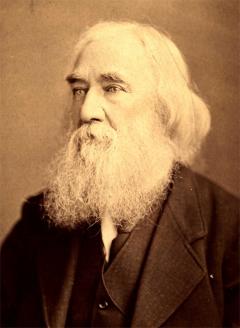
Lysander Spooner
Before I close this out I’d like you read two quotes from a very wise man; Lysander Spooner. I hope that you’ll find them useful; even though they may not help you regain what your government has stolen from you – your rights and liberty. Read and enjoy…
A man is no less a slave because he is allowed to choose a new master once in a term of years.
But whether the Constitution really be one thing, or another, this much is certain – that it has either authorized such a government as we have had, or has been powerless to prevent it. In either case it is unfit to exist.
So all you can do now is either continue what you’ve been doing while America circles the toilet, or you can join me, and others, in opposing this evil beast that governs every aspect of our lives by not voting and educating others as to the evil nature of those we call our government; and that goes for those belonging to both political parties – the swamp does need to be drained, but the swamp is our government. Get rid of it and freedom and liberty might stand a chance. Keep on doing what you’ve been doing and you’ll ensure that they die a gruesome death. Your call…
February 27, 2020

~ The Author ~
Neal Ross Br’er Rabbit, Student of history, politics, patriot and staunch supporter of the 2nd Amendment.
If you liked de Rabbit’s latest column, maybe you’ll like his latest booklet: The Civil War: (The Truth You Have Not Been Told). Life continues to expand for this prolific writer and guardian of TRUE American history.

